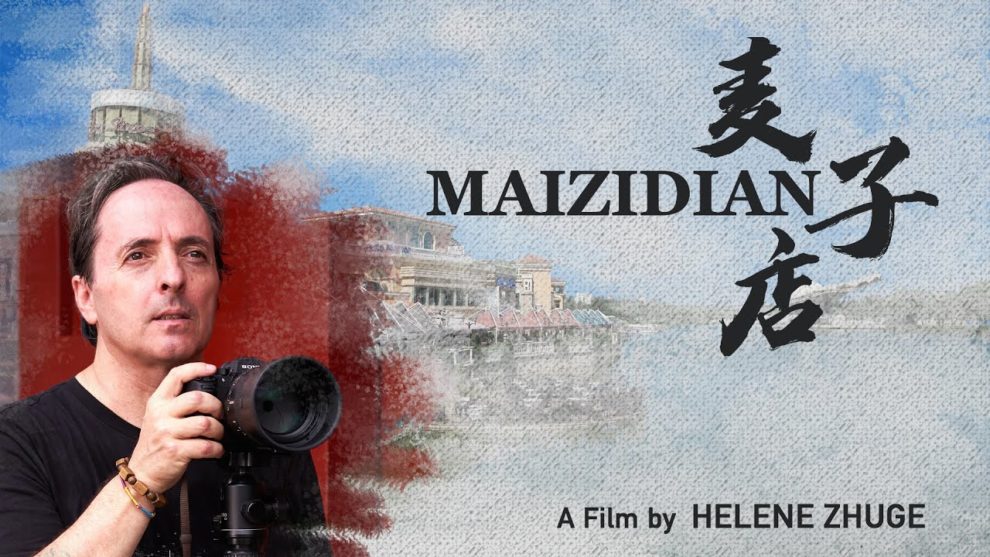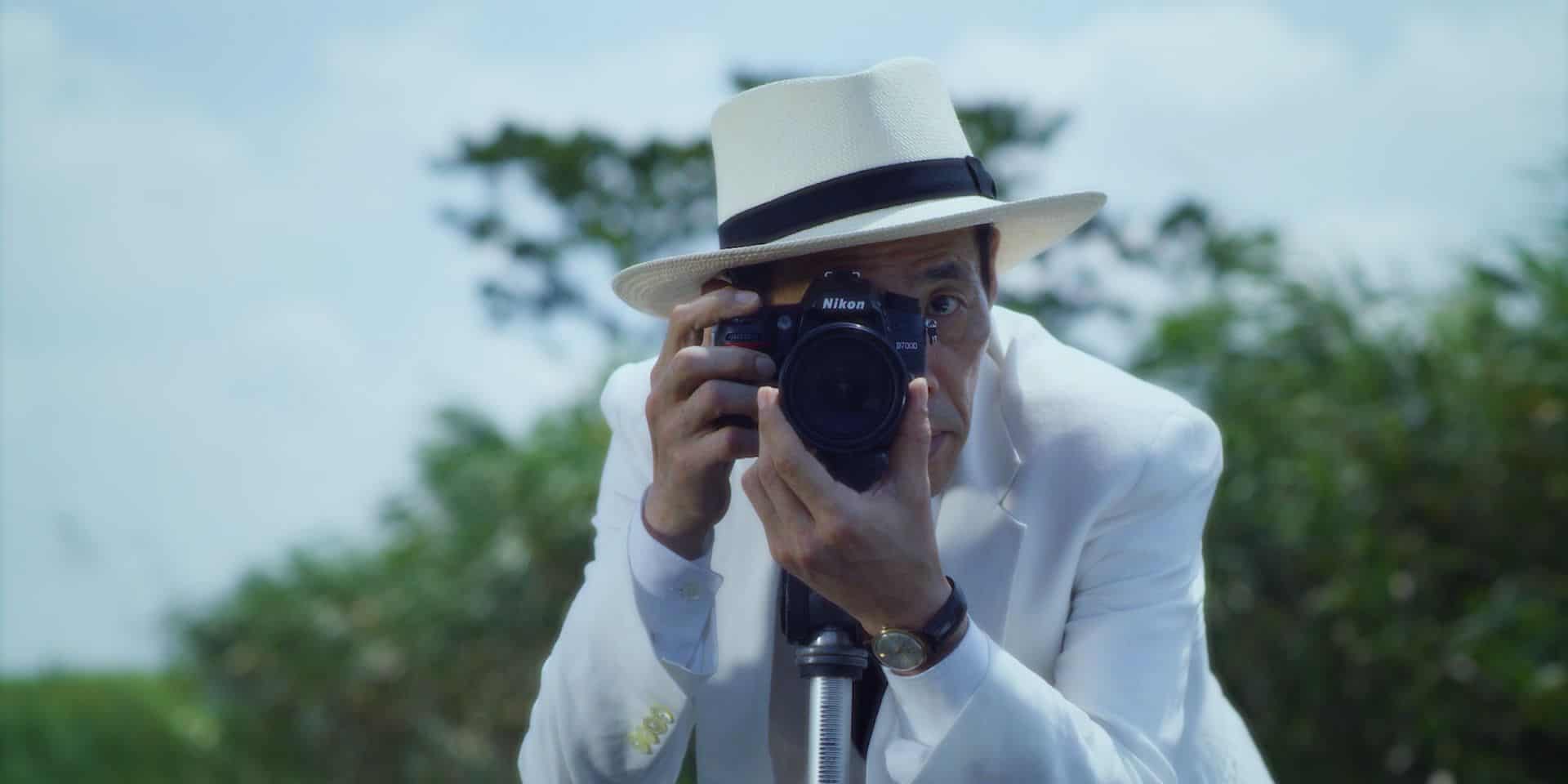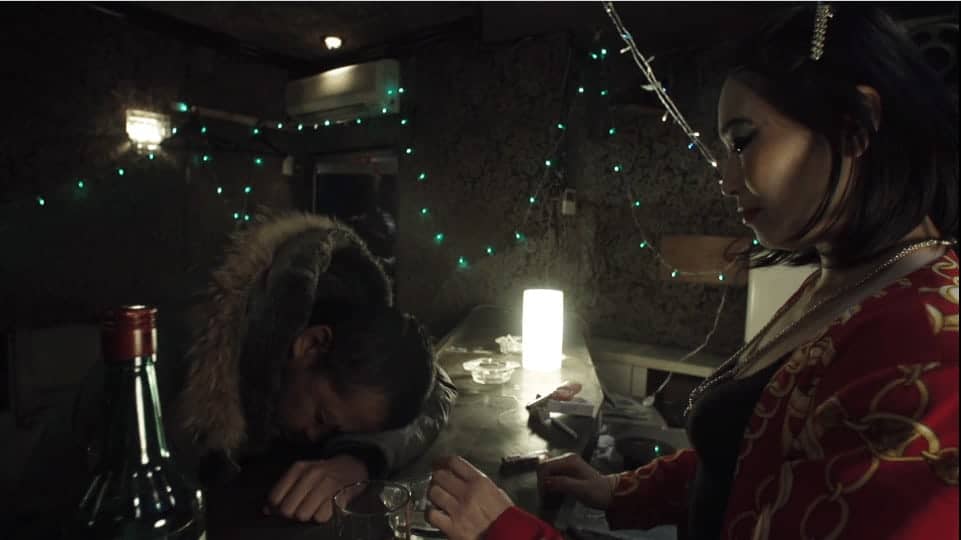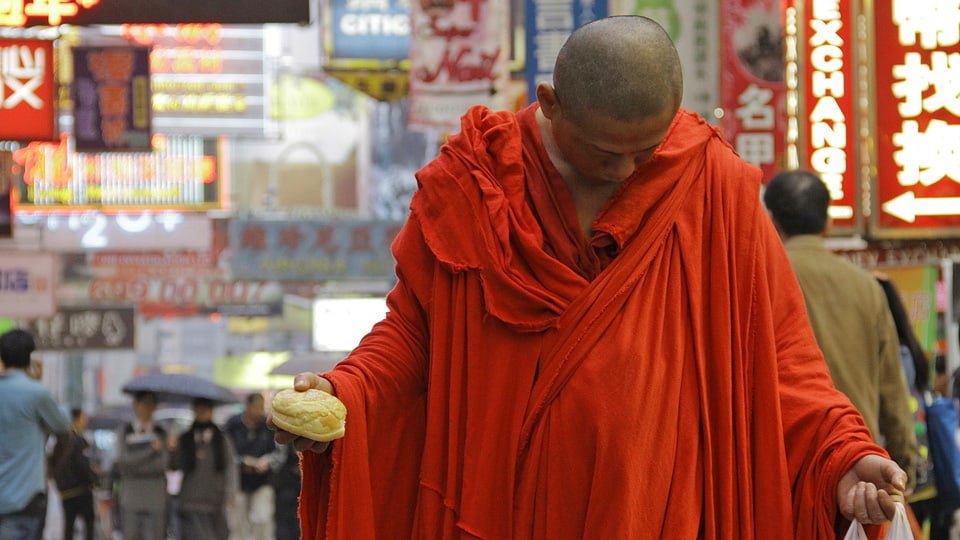Holding a personal interest for me, since the documentary focuses on the life of a Greek photographer, George, in China, I was really eager to watch this particular documentary, additionally because it captured the way people, and mostly foreigners, experienced the pandemic in China. My final perspective on the film is that it has some things working for it and some not. Let us take things from the beginning though.
“Mazidian” review is part of the Submit Your Film Initiative

On New Year's Day 2020 in Beijing, George spoke with his sister in Athens and told her that he had plans to travel back to Greece in August to hold his photographic exhibition. Yet, shortly after that, Covid-19 broke out and he was unable to travel anywhere. Nine months later, George is still in Beijing, looking for his friend Lao Song in Mazidian, to discuss his photographic exhibition. As Lao Song is busy and asks from George to wait, the latter visits various people in the area, where he discusses how they experienced the pandemic and what their situation is now.
His “road trip” has him stopping first at the Maizidian Mandarin School, where he learned to speak Mandarin ten years ago, while as he continues roaming the streets, he comes across a number of old friends and new acquaintances, while he also takes a trip to his own past, and particularly an exhibition in the Czech Republic and his time with his Chinese wife. Greg, an actor from the US, Oda, a chef from Japan, Daniel, a Brazilian coach who worked in Mazidian but left to celebrate Christmas in his country and now finds himself stranded there, the German employees of a Kempinski hotel, and a number of locals, including shop owners, dancers and police officers appear on screen, highlighting the experience of the pandemic from a number of angles, although the sentiments of shock and being stranded are rather similar.
The level of production of the documentary is impressive, which is a great start for a film that has invested a lot in the images presented. Starting with the sequences in countries like China, the Czech Republic and Brazil, and including the quality of the both the image and the various photographs that appear throughout the movie, the result is visually exquisite. The same applies to the editing, with the order of interviews and the juxtaposition with the past elaborately telling the story of both George and the rest of people appearing on screen, and the pandemic experience. The final comment, that despite origins and background, people have the same thoughts and feelings about COVID, emerges as rather eloquent message on unity. Lastly, George Doupas's kindness and the way he feels comfortable both being shot and shooting others himself works quite well for the documentary.
On the other hand, Helene Zhuge overdoes it with the promotional aspect of the movie, to the point that, quite frequently, the documentary looks like an advertisement. Starting with George himself, who keeps promoting himself (and the fact that he has a Chinese wife, something he seems to be particularly proud of) and continuing with the various establishments he visits, which are presented in the way sponsors would, this aspect soon gets overboard. Furthermore, the repeated mentioning of how well China and particularly Maizidian handled the pandemic also moves in that direction, reaching its apogee in the interactions with the police officers. The repeated comment on how Chinese obedience helped the country overcome the pandemic in contrast to the disobedient Westerners, also goes down the same path. Granted, it seems that the East Asian countries are handling the pandemic much better than the inexperienced West, but the image the film promotes seems to state that all went smoothly in China, due to the mentality of the people and government policies (including the setting up of cameras everyone in the film refers to as a beneficial measure for monitoring people's actions during the lockdown) which comes across as somewhat excessive in the end. Particularly since “76 Days” showed a completely different picture recently.
Lastly, the various interviews may be framed and shot artfully, but the effort to present them as chance encounters fails completely, since the fact that at least most of them are set up is rather obvious, with the one with the Algerian doctor being the most obvious sample.
“Maizidian” is an interesting and beautiful documentary, which shows both China and the pandemic experience from the perspective of someone who is both an insider and an outsider in the country. In the end, however, the promotion aspect and the lack of any kind of critique regarding China takes its toll on the movie, which ends up looking more as an advertisement.















